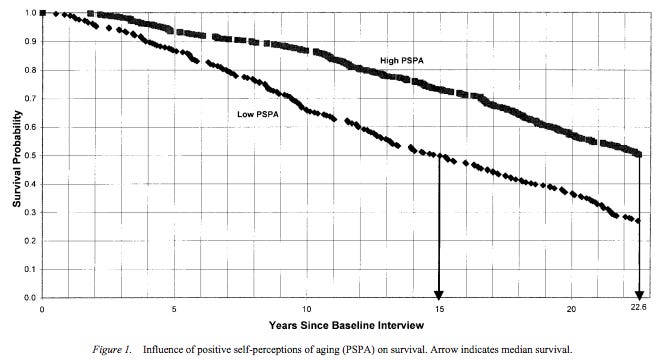I’m 36, And I Just Realized A Timeless Truth I Missed All This Time
A weird but cool combination of Jeff Bezos and aging studies that will make you think differently about aging.
Author’s Note: This article was written over 60 hours with love and care using the blockbuster mental model. It was originally published in 2018.
My daughter is 9. I am 36.
She is halfway to becoming an adult. I am halfway through my life.
I’m young enough to be laughed out of the room by a 60-year-old for agonizing over the shortness of life. But I’m old enough to think of college students as kids.
I see my mom and mentors grapple with the common end we are all marching toward, and I can no longer deny that I am marching in the same procession. I can see crow’s feet forming around my eyes. I’ve got mild and persistent back pain. Last week, I tweezed my first white hair. My right pointer finger doesn’t bend all of the way, and I’m not sure it ever will.
So I wonder:
What’s the proper stance toward the second half of my life?
This is one of the most important questions we can ask ourselves because how we think about the future impacts the decisions and actions we take today, which then impact the outcomes we have.
In a very real way, our stance toward our future is our future.
Several high-profile studies have shown that this effect is particularly strong with our beliefs about aging…
Our Beliefs About Aging Can Increase Our Lifespan By 7+ Years
A fascinating 23-year Yale study shows that our self-perceptions of aging dramatically impact our lifespan.
In 1975, 660 individuals aged 50 and over in a small town in Ohio were recruited to participate in a survey about their self-perceptions of aging. Based on their responses to the following questions, they were labeled as having low or high positive self-perceptions of aging (PSPA):
Things keep getting worse as I get older.
I have as much pep as I did last year.
As you get older, you are less useful.
I am as happy now as I was when I was younger.
As I get older, things are (better, worse, or the same) as I thought they would be.
Then, 23 years later, in 1998, researchers identified who had survived and who hadn’t. They also controlled for age, gender, socioeconomic status, loneliness, and functional health.
As the chart below shows, individuals with high positive self-perceptions of aging lived an amazing 7.5 years longer than those with low positive self-perceptions of aging…
A follow-up study confirmed the results. Interestingly, the average age of the initial interview in this follow-up study was 36.5 years (my current age). The researchers write:
Consistent with our hypothesis, younger individuals who held more negative age stereotypes were significantly more likely [nearly twice as likely to be precise] to experience a cardiovascular event over the next 38 years.
These results are astounding when you think about them. If true, changing our beliefs about aging might be the cheapest, simplest, and safest health intervention ever created.
By contrast, it has been shown that negative beliefs about aging, lead to worse outcomes such as (1) greater cardiovascular response to stress and (2) worse health behaviors (for example, higher tobacco use). Both of these are linked to increased cardiovascular risk. A more recent study has even shown a significant link between our self-perceptions of aging and Alzheimer’s Disease.
What these studies teach me, and by extension everyone reading this, is threefold:
How we think about our age matters.
It matters because it impacts our decisions and behaviors, which then impact the results we get in the future.
It even matters when we’re still fairly young.
While profound, these studies are limited. They only address the link between our self-perceptions of aging and our health.
As someone ambitious and on the cusp of middle age, I’m also interested in how my perceptions of aging impact me professionally. More specifically, I’m interested in how they impact my lifetime success, impact, creativity, and happiness.
In my twenties, it felt like the future was infinite. And, as my forties inch their way closer, time is no longer open-ended.
I find myself doing calculations like:
It’s been 18 years since I graduated high school. Right now, according to the most recent actuarial tables, I’ve got about 42 years left to live. In 18 more years, I will be 54, my kids will be 27 and 25, and I’ll have about 26 years left.
Or, if I spend about 10 years on each company I start, that means I have 3–4 more companies in me still.
Each of these reflections essentially has me on a countdown clock to death. Each year that passes by is a year less to live.
At times, I’ve found myself wondering whether I should be savoring life more… rather than being so focused on making investments that will pay off in the future.
More recently, I was inspired to think in a completely different way, and the inspiration came from an unlikely place…
Jeff Bezos, the founder of Amazon.
Applying Jeff Bezos’ Day One Philosophy To Aging
I first learned about Jeff Bezos’ Day One Philosophy a few years ago in one of his interviews. The idea is that it’s always Day One at Amazon: The attitude he wants the company to take is “Things are just getting started.”
“That’s a cute motto for a 20-year-old company,” I thought to myself. It reminded me of a motivational quote I might see on a bumper sticker or refrigerator magnet.
But in 2017, when I read Bezos’ letter to shareholders dedicated to the Day One philosophy, I really realized its true depth. Bezos isn’t saying it to motivate people. He’s saying it because, on many levels, it’s true.
Here is how Bezos begins the letter:
“Jeff, what does Day 2 look like?”
That’s a question I just got at our most recent all-hands meeting. I’ve been reminding people that it’s Day 1 for a couple of decades. I work in an Amazon building named Day 1, and when I moved buildings, I took the name with me. I spend time thinking about this topic.
Day 2 is stasis. Followed by irrelevance. Followed by excruciating, painful decline. Followed by death. And that is why it is always Day 1.”
Let me unpack this so you see the profundity of what I saw:
Lesson#1: How Old We Think We Are Determines How We Make Decisions
Let’s take four people who are the same in every way except one detail. One is 10 years old, one is 30, one is 50, and one is 70.
Just on this one detail alone, each of these people would make completely different decisions. Ted would likely not even be thinking about the future, or if he did, he’d imagine it (wrongly) to be infinite. Thistle would invest money in long-term funds and her time and energy in long-term bets—she wouldn’t mind putting five or more years into building a company or a relationship that could lead to marriage. Phil might be more conservative, and Sally would likely be thinking only in the short term.





